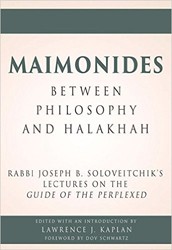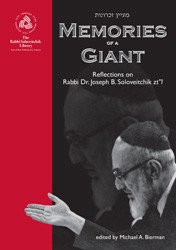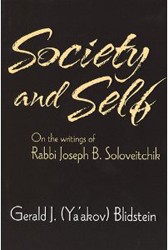The Last Rabbi: Joseph Soloveitchik and the Talmudic Tradition, is a deep dive into the psyche, philosophy, and halachic thinking of the widely acknowledged thought leader of Modern Orthodoxy, Rabbi Joseph Soloveitchik. The author, William Kolbrenner, a professor of English at Bar Ilan University, weaves his interests in Jewish thought and literature into his powerful examination, providing readers with a “thought biography” that challenges us to consider Rabbi Soloveitchik as the “reluctant modern.”
In his preface, the author shares that The Last Rabbi is not the book he originally envisioned writing. Kolbrenner intended to place Soloveitchik’s philosophy within a pluralistic and liberal worldview, while also “emphasizing continuity between his various works as well as between him and his rabbinic antecedents.” Instead, The Last Rabbi argues that Soloveitchik’s worldview is equally, and paradoxically, a traditionalist response to the destruction of European Jewry and a radical embrace of the pluralism of modernity.
The Last Rabbi is divided into two parts, the theme of each drawn from Freud’s 1917 work Mourning and Melancholy. Part One, entitled “Talmudic Tradition: Mourning,” explores the author’s claim that mourning is fundamental to the rabbinic crafting of Jewish tradition. Part Two, entitled “Joseph Soloveitchik: Melancholy,” interprets Soloveitchik’s thought as a product of his melancholy, his unconscious grief for the loss of the Brisk tradition he cannot fully comprehend. It is in Part Two that Kolbrenner tackles Soloveitchik’s thinking on repentance, law, gender, and ethics. To fully appreciate this section, a familiarity with psychoanalysis, literary theory, and Soloveitchik’s key writings are beneficial, if not required.
The final chapter, titled “Conclusion: The Last Rabbi and Talmudic Irony,” brings together the multifaceted portrait of Soloveitchik as the innovator of Modern Orthodoxy who, at the same time, faced an almost inconceivable trauma of loss on both a personal and collective level. How Soloveitchik negotiated this tension as a Jewish leader, and how Judaism can learn from the Rav’s struggles to fashion a post-traumatic Jewry of the twenty-first century, is where the author ends his exploration. Kolbrenner writes that “the great achievement of his [Soloveitchik’s] work for the current generation may help to inform attempts to revive the hermeneutics of mourning, which remained for Soloveitchik only a fantasy…” In his hopeful conclusion, the author makes the struggles of Soloveitchik an opportunity for reflection and growth.
Related Content:





